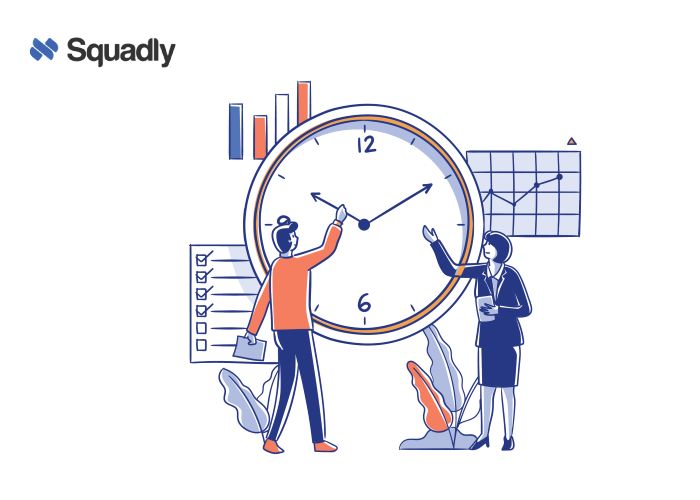In today’s fast-paced world, effective time management has become a critical skill for individuals and organisations alike. The ability to prioritise tasks, stay focused, and maximise productivity is key to achieving personal and professional goals. In Australia, a country known for its strong work ethic and commitment to work-life balance, time management strategies have gained significant importance. In this comprehensive guide, we will explore effective time management strategies and highlight valuable time management resources available in Australia.
Set Clear Goals And Priorities
Setting clear goals is the foundation of effective time management. Start by defining your short-term and long-term goals, both personally and professionally. Break them down into smaller, actionable tasks and prioritize them based on importance and urgency. By having a clear roadmap of what you want to achieve, you can allocate your time and energy more efficiently.
Prioritize Tasks Using The Eisenhower Matrix
The Eisenhower Matrix is a popular time management tool that helps you prioritize tasks based on their importance and urgency. Divide your tasks into four categories: urgent and important, important but not urgent, urgent but not important, and neither urgent nor important. Focus on the tasks in the urgent and important quadrant, delegate or schedule tasks in the important but not urgent quadrant, minimize or eliminate tasks in the urgent but not important quadrant, and avoid or minimize tasks in the neither urgent nor important quadrant.
Utilize Time Blocking
Time blocking is an effective technique to allocate specific time blocks for different tasks or activities. Dedicate uninterrupted periods of time for focused work on important tasks, allowing you to enter a state of flow and accomplish more in less time. Schedule time for specific activities, such as email management, meetings, and breaks, ensuring a structured approach to your day.
Practice The Pomodoro Technique
The Pomodoro Technique is a time management method that breaks work into intervals, usually 25 minutes of focused work followed by a short break. After completing a set of intervals, take a longer break. This technique helps improve focus and productivity by working in short bursts, maintaining high levels of concentration, and allowing for regular mental rest.

Minimize Distractions And Time Wasters
Identify common distractions and time wasters that hinder your productivity and take steps to minimise or eliminate them. Turn off notifications on your phone or computer, close unnecessary browser tabs, and create a dedicated workspace that is free from distractions. Use productivity tools or browser extensions that block distracting websites or track time spent on different tasks to keep yourself accountable.
Delegate And Outsource
Recognize that you can’t do everything on your own. Delegate tasks to capable team members or consider outsourcing non-essential or time-consuming tasks to external professionals or service providers. By leveraging the skills and expertise of others, you can focus on high-value activities that require your specific attention and expertise.
Leverage Technology And Productivity Tools
In the digital age, numerous productivity tools and apps are available to help manage time effectively. Utilise digital calendars and scheduling tools to plan and organise your tasks. Project management software can help track progress and deadlines, while note-taking apps can capture ideas and important information. Explore time tracking apps to monitor how you spend your time and identify areas for improvement.
Practice Mindfulness And Self-Care
Incorporating mindfulness and self-care practices into your routine can greatly enhance your time management abilities. Taking short breaks to engage in deep breathing exercises, meditation, or physical activity can rejuvenate your mind and improve focus. Additionally, ensuring you get enough sleep, maintain a balanced diet, and prioritise self-care activities can optimise your overall well-being, leading to increased productivity and better time management.
Learn To Say No
One of the most challenging aspects of time management is learning to say no to tasks or commitments that don’t align with your priorities. Recognize that your time is valuable, and taking on too much can lead to overwhelm and decreased effectiveness. Assess requests or opportunities against your goals and priorities, and politely decline those that do not align with them. By saying no strategically, you create space for tasks that truly matter and prevent time from being wasted on non-essential activities.
Continuously Evaluate And Adjust
Effective time management is an ongoing process that requires constant evaluation and adjustment. Regularly review your goals, priorities, and time management strategies to ensure they remain aligned with your current needs and objectives. Assess the effectiveness of the strategies you employ and be open to experimenting with new techniques or tools that may enhance your productivity. Flexibility and adaptability are key to refining your time management skills over time.

Seek Accountability And Support
Cultivate a Productive Mindset: A productive mindset is crucial for effective time management. Develop positive habits and attitudes towards tasks and deadlines, focusing on progress rather than perfection. Embrace a growth mindset, recognizing that time management skills can be developed and improved with practice. By cultivating a productive mindset, you’ll approach your tasks with a sense of enthusiasm, resourcefulness, and resilience, leading to increased efficiency and effectiveness.
Practice Continuous Learning
Time management strategies and techniques evolve over time, influenced by changing technology, work environments, and individual needs. Commit to continuous learning and stay updated on the latest trends and best practices in time management. Explore books, podcasts, online courses, and seminars dedicated to time management and productivity. Embrace a growth mindset and be open to adopting new approaches that align with your unique circumstances and challenges.
Mastering time management is essential for personal and professional success in today’s fast-paced world. By implementing effective time management strategies such as setting clear goals, prioritizing tasks, utilizing time blocking and the Pomodoro Technique, minimizing distractions, delegating and outsourcing, leveraging technology, and accessing time management resources in Australia, you can enhance your productivity, achieve your goals, and maintain a healthy work-life balance. Invest time in developing your time management skills and reap the rewards of increased efficiency, reduced stress, and greater satisfaction in all areas of your life. Incorporating these additional insights into your time management journey can further refine your skills and boost your productivity. Remember, effective time management is a continuous process of self-reflection, adjustment, and growth



